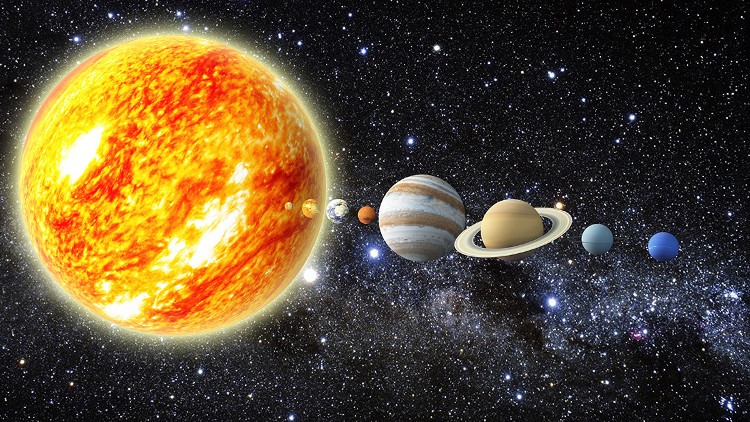The planet smelled of gunpowder in the solar system
Odor on each planet is determined by the major chemical components in the atmosphere.
The astronauts once collected soil samples on the Moon describing this object smelling like gunpowder after burning, according to Howstuffworks. This is consistent with the key component of the Moon, silicon dioxide, calcium and magnesium.

Mercury is almost odorless.
Mercury, the planet closest to the Sun, has lost most of its atmosphere long ago because of the sun-blown wind, the most abundant is sodium, so the planet is almost odorless. Venus, with its atmosphere much more massive than Earth and full of sulfuric acid clouds, has a pungent odor of rotten eggs.
Mars with a synthesis of iron, magnesium, sulfur, and acid in an environment rich in carbon dioxide also produces the smell of rotten eggs. The smell of the giant planet Jupiter changes according to the atmosphere. The outer atmosphere smells like glass cleaner because it contains a lot of ammonia, while the lower atmosphere has an almond odor because it contains a lot of hydrogen cyanide.
Although the smell of Saturn has not been determined, the planet's Titan moon with a nitrogen-containing atmosphere may smell like a petroleum refinery.
Uranus has almost no odor when containing hydrogen, helium and about 2% of methane. Neptune has a smell similar to Uranus.
- Evidence of the 9th planet of the Solar System
- Explore the atmospheric atmospheres of the solar system
- 99.99% has the 9th planet in the solar system
- The 9th planet can cause disaster for the solar system
- The mysterious X planet is devastating the solar system
- NASA first admitted to having a strange planet hidden in the Solar System
- December 28: Galileo discovers a new planet in the solar system
- The 9th planet of the solar system is ... stolen goods?
- Stunned to discover a new dwarf planet in the Solar System
- Miraculously discovering the 'forbidden planet' in the Solar System
- Found a way to spot the 9th planet in the Solar System?
- The solar system has ... 110 planets?
 Discovered an ancient centipede fossil 99 million years old
Discovered an ancient centipede fossil 99 million years old Discovered bat-like dinosaurs in China
Discovered bat-like dinosaurs in China Discovered a 200-year-old bronze cannon of the coast
Discovered a 200-year-old bronze cannon of the coast Discover 305 million-year-old spider fossils
Discover 305 million-year-old spider fossils